
Having
gained great acclaim for successful blockbuster hits like ROBOCOP,
TOTAL RECALL and BASIC INSTINCT, Dutch director Paul Verhoeven took
a temporary hiatus from
Hollywood
and returned to his native
Netherlands
to embark on another captivating period piece. Based on true events
and archival revelations, Verhoeven’s upcoming thriller BLACK
BOOK
unravels the grim, shocking and devastating WWII conditions plagued
with murder, betrayal and desperate acts of survival during and post
war
Holland
.
BLACK BOOK
uncovers the intriguing historical events in a typically racy
Verhoeven style, producing a fascinating, mysterious and educational
piece. A film this enthralling
and stimulating is befitting of a characteristically animated and
energized man! It’s a rare
experience to witness such a youthful spirit in a seasoned director.
He is both admirable and inspiring! I had the recent pleasure of
speaking with the candid Dutch director as he spoke about his films,
break from
Hollywood
, the prospect of an Oscar and the deep admiration for his lead
actress Carice van Houten. Check
out what Verhoeven had to say about his latest exhilarating suspense
BLACK BOOK.
Paul
Verhoeven

This
movie was reminiscent of John Sturges’ 60’s type war movies like
THE GREAT ESCAPE. Was
that an influence on you?
No.
Well I mean, as I’d say subconsciously or unconsciously, I’m sure it
was. I’ve been brought up with, let’s say, with American movies my
whole life with the small exception of a period that I was highly
influenced by the New Wave – the French New Wave. But, then I went
back to American movies. I’m sure I had seen all these movies, but I
was not trying. I didn’t think about this as particularly the
movies. And I felt it was kind of a different story although, there
are clearly elements that are similar. But, I was emotionally and
highly influenced by historical reality.
A lot
of the scenes are inspired by true events, but these are actual
events. And, it was the material that we found in the archives of
the
Dutch
War
Museum
and in publications, mostly scholarly publications over a period of
nearly 20-25 years that inspired us mostly. Then, the style of the
movie is pretty modern I think although the narrative has a
Hitchcockian twist, I would say. And, you know that I’m a big
admirer of Hitchcock, I’m sure that might have been more of an
influence than anything else but not consciously either. There are
no scenes that are done basically because Hitchcock did something
similar. In fact, he did not. But, BASIC INSTINCT is clearly highly
influenced by Hitchcock in thinking.
Have
you seen ARMY OF SHADOWS? That’s very similar also.
Oh, Army
of Shadows, L’armée DES Ombres…I saw it when it came out.
It was very delayed here in the
United States
. It’s of the 60’s or 70’s or something like that, isn’t it? The
Melville movie, yeah. It’s one of the movies basically that I
thought was very impressive at that time when I saw it.
I’ve never seen it again (since then). But, I’m sure that
elements of that movie basically influenced me also without knowing
[it]. You don’t know what it really influences you.
What
thematic threads do you see between the three films, ARMY OF SHADOWS,
Soldier of Orange and Starship
Troopers?
Beginning
with Soldier of Orange,
I would say it’s the other side. There’s only a look over the hill
and Soldier of Orange
is more positive. It shows more lightness. You have real heroes, I
mean, they’re not, let’s say…yes, there are a couple of moral
questions that you ask of the main person. Why he does certain
things to his friends. Why, in fact, he sleeps with the fiancée of
his friend. But, in general, he’s drawn in kind of a very positive
way that was based on an autobiography by Erik Hazelhoff Roelfzema.
It was not showing the last very dark year of the war where all
these ambiguities and betrayals were basically random.
I
mean they were all over the place.
So I felt that because the hero of the movie, in ‘44 or ’45
is a RAF pilot in
England
, he’s not there. Basically, I felt that a lot of the material that
I’m using in this movie was already discovered – notably, the plot
with the BLACK BOOK, the lawyer [Smaal], Muntze and Franken was
already discovered and found by my scriptwriter, in the research of Soldier
of Orange. He asked if they could use it, basically put it to
the side as being the other side – perhaps, the shadows, the
darkness. It took many years basically to put that story together
and find the characters, to fill it in and whatever (else) that was
all based on other historical research. So, I see it more as a
complement, or let’s say supplement that you call it.
Everyone
aside from the character Rachel Stein seems to be a profiteer in
this movie just as in Starship
Troopers. It
appears to be a driving factor behind the wars in both films.
It’s
true. But I think the driving factor of Starship
Troopers for me was always really, “Let’s go to war and
die.” It’s very prophetic I thought…it is a book of Robert
Heinlein first of all (as opposed to) a group of scriptwriters (who
were to) draw the book up. This really goes to another side.
Basically, it’s historical research, and it is written by Gerard
Soeteman [who] did all my Dutch movies. So, I think there is another
tone.
It’s
the same director clearly [so] certain elements will be similar.
But, I feel that the corollary situation with Soldier
of Orange is stronger than anything in Starship
Troopers. It’s
also especially expressing itself often politically in a kind of
ironic, hyperbolic way. This is straight [forward whereas] Starship
Troopers has a primary narrative which is like I just said,
“Great, we got to go to war and great, we’re going to
die.” The underlying tones are of course a certain…vision on
American society.
Returning
to WWII after all these years, between Soldier
of Orange and this picture, how have all those years of
living in world politics plus what you’ve learned stylistically as a
director, influenced how you now work on this film?
I
think, basically for me, it was great. Also, some critics didn’t
like it at all clearly [because] I was much more, let’s say inclined
to use a driving narrative. The narrative is much more driven [and]
compelling [for] you to keep looking. There are [many] more question
marks. “Where is it going? What’s going to happen?” I mean,
[this is] something that is so very normal to American cinema but in
European cinema, if you look for example at a movie like La
Dolce Vita or 8 1/2 (Otto
e Mezzo), [they are] great movies, but there is no compelling
narrative.
So, I
think, basically, my years in the United States made me ask my
scriptwriter to write a script in a certain way so that there will
always be question marks. [I
want] the audience that will be sitting there for 10 minutes [to] be
seduced not to leave because there were things happening already
[posing] questions like “Where
is this going, and what is going to happen?”
Are
you interested in staying away from
Hollywood
or are you looking forward to coming back to
Hollywood
?
No.
I’m living in
Hollywood
. I’m living in
Los Angeles
, and I’m not leaving. I was looking forward to doing this movie as
a sabbatical and perhaps I will do another European movie. In the
meantime, I would love to go back to American filmmaking, which I
have enjoyed very much too. But I think it was time [for me] to do
something different, you know. I felt [the need to do something
different] after Hollow MAN, which
I felt, really was a
movie that many directors could have done. I feel very differently
about Starship Troopers
or RoboCop.
I say I could have done that [but] not so many other people
[could have], so I felt that I should go back to something personal.
And if I do an American movie, I would like to do something that is
not derivative or is not…something that ONLY I could do well, if I
can find it.
During
your WWII archival research for this film, did you make any
revelations or discoveries that were shocking or surprising to you?
Yes,
notably the treatment of the Dutch after the war and what they did
to the people that had collaborated [in the war]. That was a shock!
I discovered that in 1966, when I was doing a documentary for
television about a Dutch Nazi leader. His name was [Anton] Mussert
who was, of course, a leading collaborator [with the] Germans.
Basically, I was discovering how the Dutch had treated their
prisoners after the war. I was shocked, and I [have carried] that
shock with me until now.
The
story of the Black Book and the lawyer who was killed and all that
– that was of course was already discovered, like I said, at the
time of Soldier of Orange.
The [biggest] shock or the thing I really could not believe until I
saw it in the newspaper, basically [had to be shown to me by]
Soeteman…because I didn’t think it could be true.
It was one of the big headline stories in the newspapers at
that time. It was the story that the Germans had been allowed by the
Canadians to kill their deserters even after liberation. In the
movie, it is dramatically [demonstrated on] Muntze.
How
has the Jewish community responded to your film?
I
think ‘til now, very good. I showed the movie in the Jerusalem
Jewish Film Festival, and I just heard it had a very positive review
in the Jerusalem Post. Anyhow, when I was [showing] there, there was
no animosity and there was a feeling that I was accepting something,
which was clearly based on a historical reality.
What
is the status on the two projects – Azazel
and the RoboCop remake?
I
don’t know anything about the RoboCop
remake. It’s been discussed many times, but no script as far as I
know is there. You know, I’m not a big fan of sequels. [Up until
now] I’ve been able to avoid them all. It was not easy with Basic
Instinct 2. Total Recall became the Minority
Report, didn’t it? The sequel of Total
Recall was based on the same story so Total
Recall 2 [was] called Minority
Report. Somehow, the company Carolco went bankrupt, as you
know. [They filed]
chapter eleven and disappeared.
The project floated slowly through Jan de Bont, my former DP
now director/producer, and it came into the hands of Spielberg [who]
made an independent movie out of that.
What
about Azazel?
Azazel I hope will start shooting in July.
What is the premise and who is attached to the
film?
Nobody
other than Milla Jovovich is attached. It’s a detective story based
on a Russian novel that was published in the
United States
about three years ago in English under the title WINTER QUEEN. But
the real title, the Russian title, is Azazel,
which we use now because I think it’s more intriguing. It’s strange.
Azazel in fact is a Jewish demon and also a scapegoat.
Basically, the scapegoat turned into the demon or the other way
around – I forget. But, it is a detective story you could say in
some way situated in
St. Petersburg
and
London
around 1876. So, it’s about 130-140 years ago and it’s very modern
in its narrative. It’s kind of charming but it’s also very
deadly…and it’s about suicides, murder, terrorism and global
conspiracy.
You
have a navy background, right?
I was
a lieutenant in the Navy for two years after my university
studies…I was drafted. At that time, the Dutch still had a draft.
You’re talking about the Sixties.
Does
that help you in any way with the making of this film?
Yes,
it helped with Starship
Troopers. And if you see the documentary film I made during
my military service because somehow…when I was in the Navy,
finally they realized that I was an aspiring filmmaker, and they put
me in the film department of the Navy and then, I was attached to
the Marines. So I followed the Marines for a whole year.
What
kind of documentary is it?
If
you see the documentary, you’ll see there are many, many
similarities with Starship
Troopers.
Talk
about your experience with WWII?
Well
I survived, you know, my family survived. Of course, we were not
Jewish. There were critical moments I would say, I think that my
father and friends were often hiding under the floor of the basement
of the house. [They were hiding from] the Germans who would pick you
up, not to execute you, but to use you for labor in the troop
factory in Western Germany and all the industrial areas, because so
many men have been sent to the Eastern front and died. So they used
Dutch people to fill in the gaps. You were a bit enslaved of course
as a Dutch person and abused, but they didn’t want to kill you, they
didn’t want to starve you or whatever. They wanted to use you. I
know that my father basically tried and succeeded in escaping that
fate.
When
we talked to your leading lady Carice van Houten, she said you
didn’t like to rehearse much. When it comes to improvising and
rehearsal, how do you like to function with your actors on set?
Mostly
I stick to scripts to a large degree especially with a script that
is so much a detective story. You
cannot allow too much improvisation there or you would lose your
information, you know. They would forget the information or put it
in a sideline, and basically, nobody would notice it. So, you have
to stick to the script I think there. I am also not a big fan of
long rehearsals because I feel that I reach too much [perfection] in
the rehearsal that I can never get back.
I
noticed that early in my career that I got great rehearsals,
wonderful – I taped them sometimes and then basically when I was
shooting, I never got it anymore, at least not to that degree. So, I
stopped early to [avoid] rehearsals [going] too far. In fact, in
this movie, we didn’t rehearse too much. We ran through the script,
and then [there] was a lot of explaining, especially for people who
had not lived the war. There was a lot of explaining to do like
“What does that mean? What is the relationship? How is this built?
Where is this Gestapo standing?
Why is he…so on and so forth?
What does this mean to the movie?” [It was] this kind of
[rehearsing]. So, it was more about that and we did this with all of
the people. Then we made
the group smaller and smaller, ‘til we ended up with the three or
four main actors. After reading the lines a little bit and talking
about it, I didn’t want them to [perform] it really well.
What
did it mean to you that your country put you forward for an
Oscar and
what do the Oscars mean to you?
Oh, I
think it was very nice first of all for them to decide to do that
because they have been often thinking about me in my country in a
different way. My certain [Dutch] movies [in
Holland
] that basically, let’s say, deserved to be sent in for an Oscar,
were not. Yeah, I think it’s great for a movie when it gets an Oscar
because it makes people that much more aware of the movie. I think
that’s the most important thing. I think the award is the audience.
I’ve
always felt that the awards of a movie are the people that want to
see the movie. I make the movies for that [reason]. If there’s an
award, I think it helps the people to focus the attention on the
movie. So it’s helpful I think. I got my reward in many cases from
the audience really especially because when I made a lot of my Dutch
movies that were extremely successful like this one is in Holland
– it’s extremely successful – but [yet] I was never really
seen by the critics as a hero. I mean they felt that my movies were
always too entertaining (laughs).
Did
you see Basic Instinct 2?
Yes,
I saw that. I’m glad I
didn’t make it.
What
did Carice van Houten bring to the table?
Everything!
Carice
said that the ‘pubic hair thing’ was your doing.
Yes
it was but I think it was really written by my writer. Carice, I
think, basically adds everything to the movie. I think without
Carice, I don’t know anybody in
Holland
in fact, that could have done this. There is nobody. I mean if
Carice wouldn’t have lived, I shouldn’t have made the movie because
she brings so much to the movie.
You are probably aware [of that] to a certain degree, but I
am much more aware that she is completely central. Without this
performance, the movie would never have worked. So I am a top fan of
hers. I am artistically completely in love with her. I think that
basically, she is a great actress.
She’s
a good singer too, in fact. And, she’s audacious and I think she’s
wonderful you know. I wish her a great career. I hope I can work
again with her in my life because I think she is so talented. I’ve
said it [before] but in many, many cases, because you asked about
the rehearsals, I felt on the set, after me directing her “you
should do this or that or feel such and so”, she would be doing
things [on her own]. Ultimately,
I’d have to say, “Carice, sorry forget everything I said. Do it
your own way, and it will be fine.” And it was always true you
know. She’s such a talent basically. You can [lead] her [in any
direction], but you’re often better to let her take the lead
herself. I think she’s absolutely amazing!
If
Carice and Sebastian Koch have a baby, you can be the godfather.
That
[romance/relationship] survived the movie, didn’t it?
Many, many don’t [survive].
This one has already survived now for a year.
It’s really wonderful I think and they’re both wonderful
people, so basically it’s a great situation. But the [geographical]
situation of their lives is horrible. He lives in
Berlin
, and she lives in
Amsterdam
. And, they both have a lot of work.


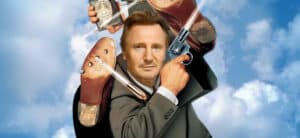

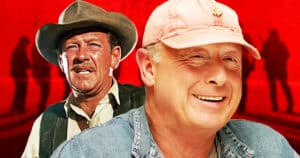
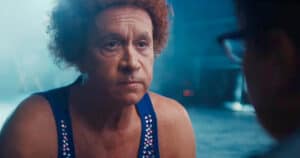
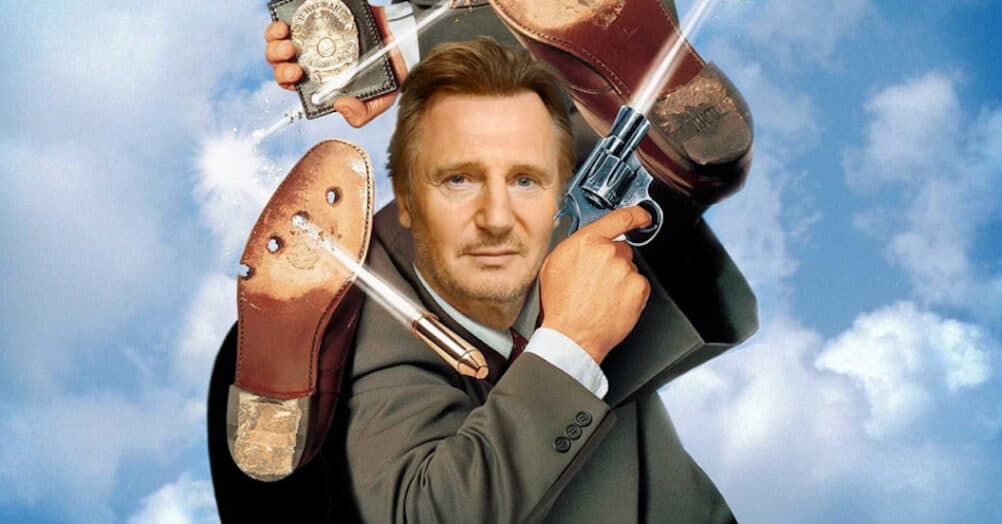

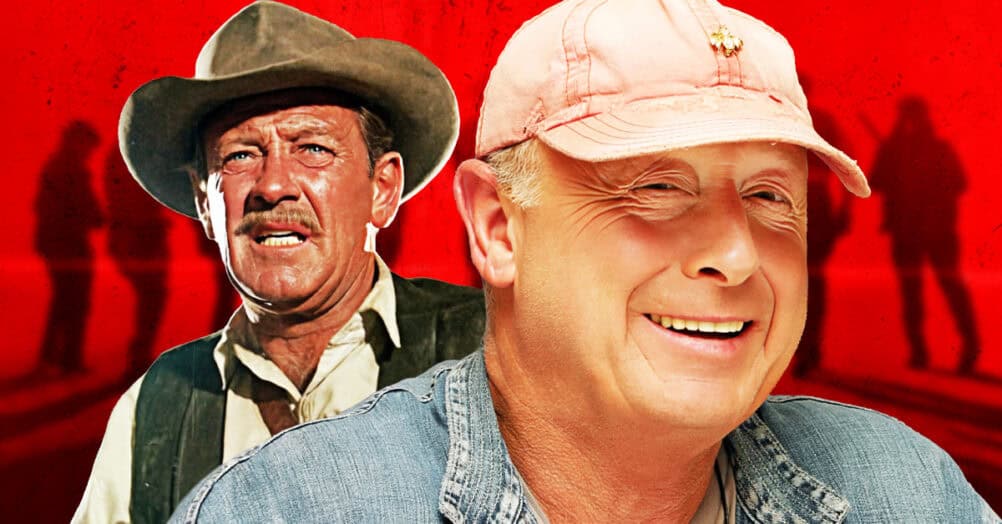
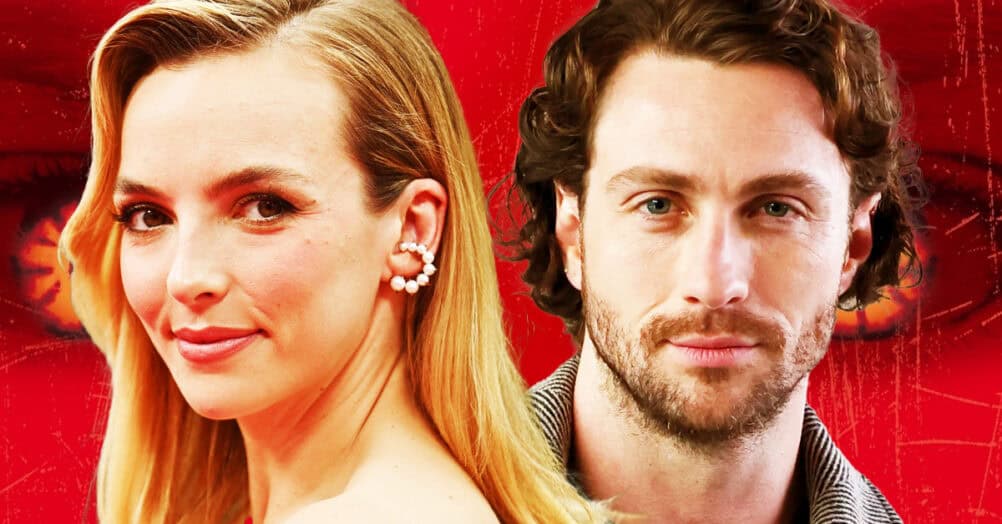
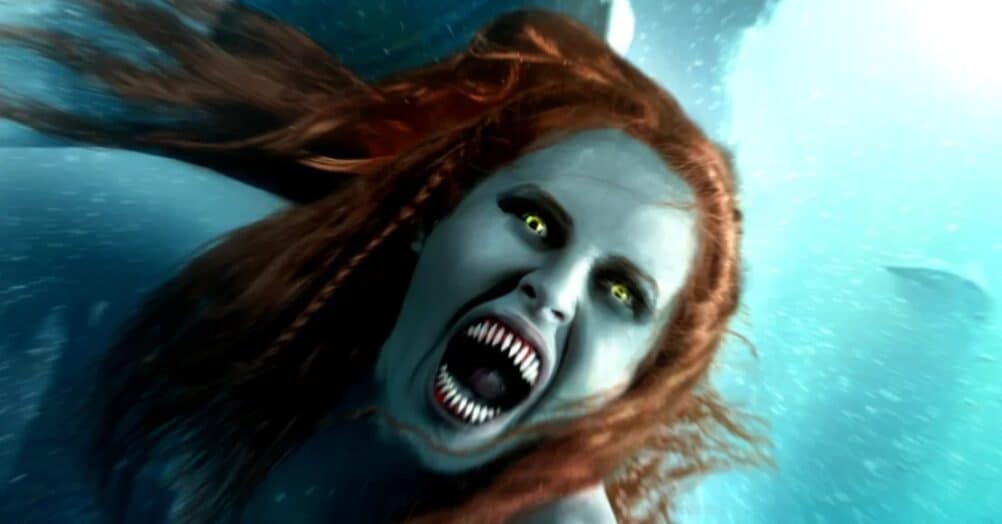
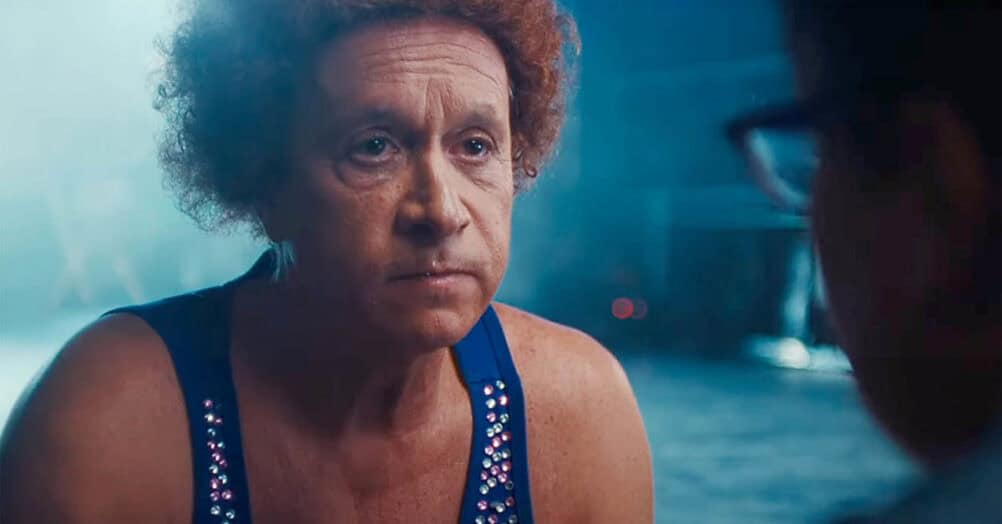
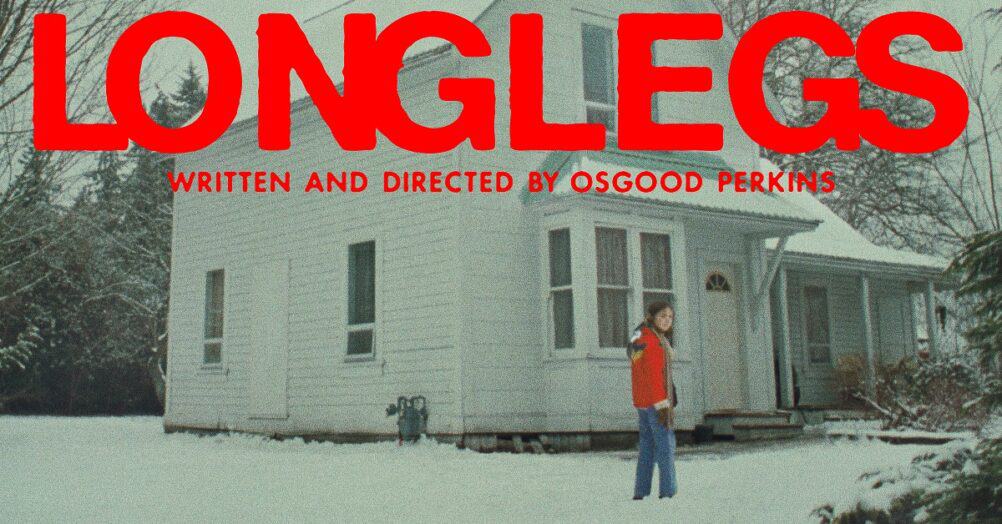
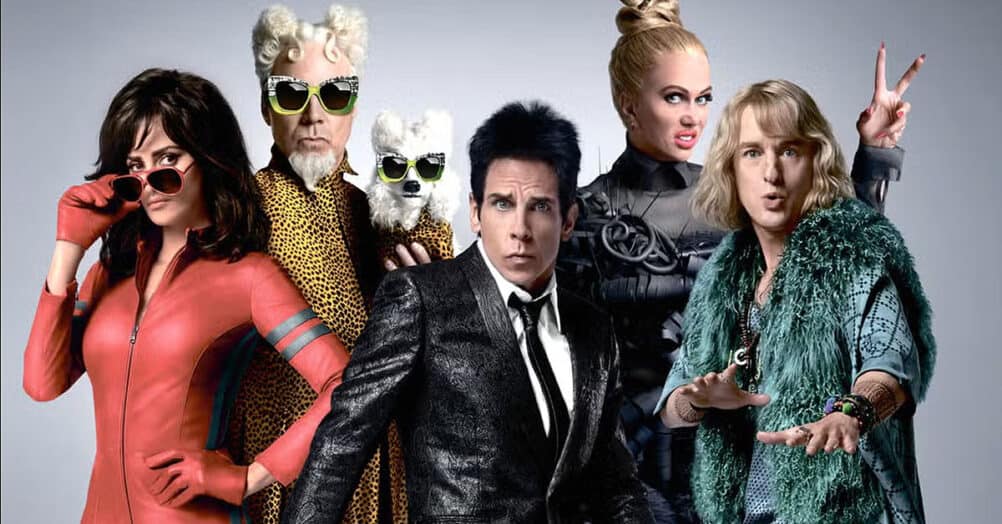
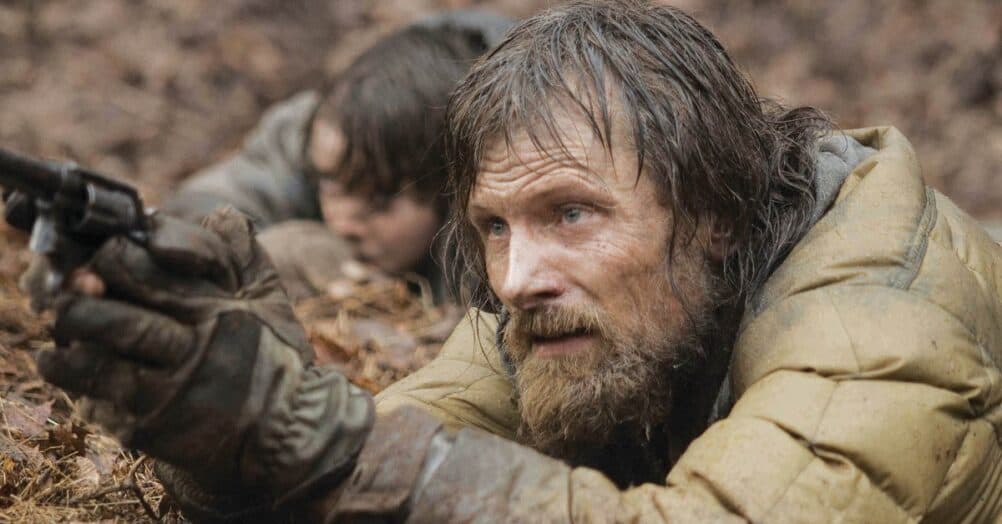

Follow the JOBLO MOVIE NETWORK
Follow us on YOUTUBE
Follow ARROW IN THE HEAD
Follow AITH on YOUTUBE